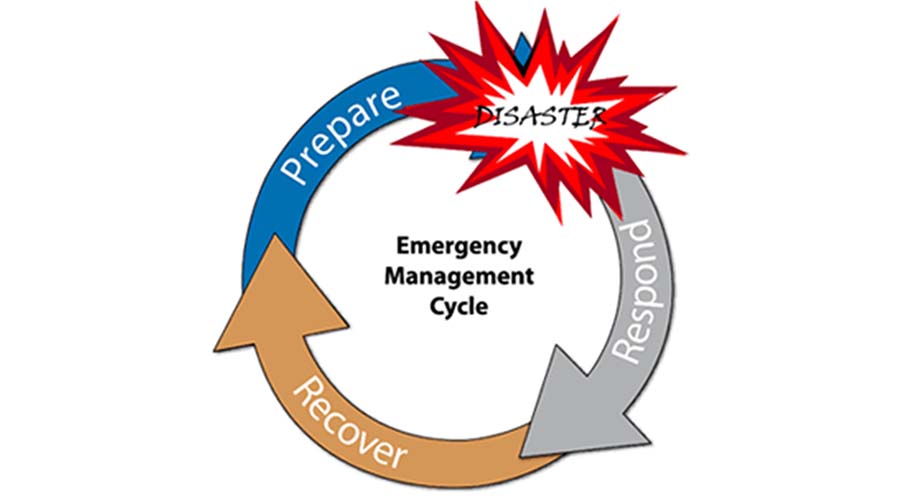Project Description
Why Attend
Emergency response is an integral component of routine corporate and municipal management that, while directly influenced by diverse and long standing regulations at all levels of government, is also influenced by non-regulatory considerations that predate the infamous terrorism attacks of more recent history, including (a) obligations imposed by corporate insurance policies, (b) corporate and municipal stakeholder concerns over tort liability, and (c) the demands of both ad hoc and formal in-plant safety committees engendered by both regulatory and societal concerns over workplace health and safety. Overt and spectacular terrorists acts throughout the world over the past several decades, of course, have given particular public impetus to the importance of both emergency planning and emergency management practices.
Effective emergency response planning, whether for incidents that derive from natural causes or for those that derive from human actions, demands both persistent and consistent liaison and coordination among a large diversity of governmental agencies, response services, and community support resources.
The increasingly global recognition that any incident—whether a hurricane or a bombing, an accidental release of a toxic industrial gas or a purposeful contamination of items essential for daily commerce—can easily be magnified in its toll of human life by the very way we conduct our lives and structure our societies has profound implications for the emergency planning process. This course addresses some of the more important of these implications, especially with regard to industrial and municipal planning and response.
Course Objectives
- By the end of the course, among various achievements, participants will get specialist insight into:
- Know how to prepare, write and test emergency plans that are appropriate to the risk that your organisation is exposed to
- Learn how to identify hazards, investigate incidents and prepare a comprehensive hazard register
- Know how your organisation should respond to reports of an emergency situation
- Establish an incident command system and ensure your communication lines between your team and external support groups are perfect
- Ensure you have the right resources in the right place to deal with the identified hazards
- Test your emergency plans through simulated scenarios and experience the pressures in decision-making by taking part in an emergency response exercise
- Assess the arrangements you have in place for disaster recovery
Who should attend
This course is ideal for either senior managers or new employees who may, in the course of their normal duties, be called upon to take up a position in their company’s emergency response organisation. Alternatively, the course would suit anyone within the company who wishes to understand the principles of emergency response as it applies to industry.
Course Outline
- Introduction
- Key Elements of Emergency Response Programs
- Extended Partnerships 19 Proactive and Reactive Dimensions
- Case Study
- Scope of Pragmatic Emergency Planning
- Hazard and Risk Assessment
- On- and Off-Site Management
- Authority and Responsibility
- Communication and Information Processing
- Provisions and Support
- Medical Treatment and Surveillance
- Remediation and Review
- Case Study
- Contents of Plan
- Implementation of Plan and Oversight
- Case Study
- Structural, Material, and Operational Sources of Hazards
- Hazard Evaluation and Mitigation
- Consolidation of Relevant Technical Information
- Blood-borne Pathogens
- Universal Precautions
- Exposure Control Plan
- Other Pathogens
- Mitigation Measures
- All-Hazard Mitigation
- Incident and Unified Command
- Potential Weapons
- Incident Site as Crime Scene
- Threat and Risk Target Assessment
- National Response Plan
- Emergency Operations Plan
- Expert Software
- In-Service Data and Information Base
- Modular Approach to Database Design
- Team Approach to Database Design
- Testing Database Design
The workshop
This interactive training course includes the following training methodologies as presented on the next column based on percentage of the total tuition hours:
Lectures
Workshops & Work presentation
Case Studies & Practical Exercises
Videos, Sofware & General Discussion
The course instructor may modify the above training methodology before or during the course for technical reasons with no prior notice to participants.
Falcon Consulting Professionals is established in Greece for the last 15 years in the areas of technical consulting and professional training for the local industries. Falcon is expanding in GCC, aiming to provide the best consulting and training solutions to the industries of the region. Falcon’s instructors are accredited trainers and highly experienced in their fields, as well as adult training. We aspire to build our business relationships on mutual trust. The achievement of results with an emphasis on innovation and sustainability, quality, cost analysis and time scheduling are non-negotiable from the conceptual phase of the training.


